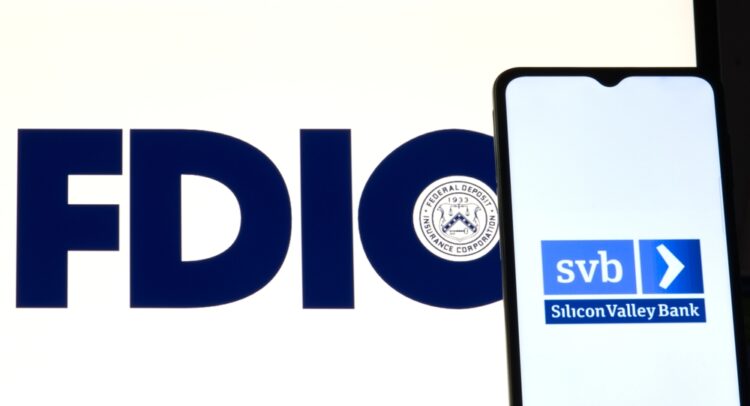What Happened to Silicon Valley Bank?
Silicon Valley Bank (SIVB) was a major lender to the tech sector, with clients such as Airbnb, Stripe and Coinbase. It was founded in 1983 and had $210 billion in assets. However, it faced liquidity problems due to its exposure to risky loans and investments. On Friday, March 10th, 2023, it was closed by regulators from California and the FDIC, who took over its deposits and assets. This was the largest bank failure since 2008 and created shockwaves in the financial markets and the tech industry.
Discover the Best Stocks and Maximize Your Portfolio:
- See what stocks are receiving strong buy ratings from top-rated analysts.
- Filter, analyze, and streamline your search for investment opportunities with TipRanks’ Stock Screener.
Which Companies Are Impacted By SVB’s Collapse?
As of March 11, 2023 the following notable companies (this is not the full list) have disclosed information related to their financial holdings in Silicon Valley Bank:
Roku Inc. (ROKU) – Roku’s SEC Form 8-K states, “The Company has total cash and cash equivalents of approximately $1.9 billion as of March 10, 2023. Approximately $487 million is held at SVB, which represents approximately 26% of the Company’s cash and cash equivalents balance as of March 10, 2023. Approximately $1.4 billion of the Company’s cash and cash equivalents is distributed across multiple large financial institutions…”
Roblox Corp. (RBLX) – Roblox’s SEC Form 8-K states, “Of Roblox Corporation’s (the “Company”) $3 billion of cash and securities balance as of February 28, 2023, approximately 5% ($150 Million, I.K) is held at Silicon Valley Bank. Thus, regardless of the ultimate outcome and the timing, this situation will have no impact on the day to day operations of the Company.”
Ginkgo Bioworks Holdings, Inc (DNA) – Gingko Bioworks’ SEC Form 8-K states, “Only the cash balance of the Company’s wholly-owned subsidiary Zymergen Inc. is held in deposit accounts at SVB, representing approximately $74 million or 6% of the Company’s cash and cash equivalents as of December 31, 2022. The Company does not maintain any other material accounts or lines of credit with SVB.”
Sangamo Therapeutics, Inc. (SGMO) – Sangamo Therapeutics’ SEC Form 8-K states, “As of March 10, 2023, Sangamo had approximately $34.4 million in deposits with SVB, substantially all of which is uninsured.”
Rocket Lab USA, Inc. (RKLB) – Rocket Lab’s SEC Form 8-K states, “On March 10, 2023, the Company announced that it has deposit accounts with SVB with an aggregate balance of approximately $38 million, which is approximately 7.9% of the Company’s total cash and cash equivalents and marketable securities as of December 31, 2022.”
LendingClub Corporation (LC) – LendingClub’s SEC Form 8-K states, “LendingClub’s relationship with SVB is limited to funds on deposit of $21 million, which amount is not material to the Company’s liquidity position or capital levels, and does not pose a risk to the Company’s ongoing business or operations. ”
Payoneer Global Inc. (PAYO) – Payoneer’s SEC Form 8-K states, “Of the Company’s approximately $6.4 billion in total cash balances as of December 31, 2022, less than $20 million is held at SVB, which is held through a combination of cash deposits and money market funds purchased through SVB but managed by a third party asset manager. The vast majority of Payoneer’s cash balances are held across more than 10 global systemically important banks.”
Compugen Ltd. (CGEN) – Compugen’s SEC Form 8-K states, “Compugen Ltd. (the “Company”), through its U.S. subsidiary, currently holds approximately 1.3% of its cash and cash equivalents ($1 Million, I.K) with SVB, and considers its exposure to any liquidity concern at SVB as immaterial.”
QuantumScape Corporation (QS) – QuantumScape’s SEC Form 8-K states, “The Company notes that it has very limited exposure to SVB, with only a low single digit percentage exposure relative to both the Company’s total liquidity and total assets.”
Fubotv Inc. (FUBO) – Fubo’s SEC Form 8-K states, “fuboTV Inc. (the “Company”) is aware that the Federal Deposit Insurance Corp. has taken control of Silicon Valley Bank (“SVB”). The Company does not hold any deposits at SVB or have any other direct investments at SVB.”
Sofi Technologies Inc (SOFI) – Sofi’s SEC Form 8-K states, “SoFi Technologies, Inc. (the “Company”) informs its investors that it does not hold assets with Silicon Valley Bank. The Company has an approximately 40 million dollar lending facility that is provided through Silicon Valley Bank, which is unaffected by the Federal Deposit Insurance Corporation’s receivership of Silicon Valley Bank.”
Lemonade (LMND) – Lemonade’s SEC Form 8-K states, “Lemonade, Inc. (“Lemonade”) is aware of media reports indicating liquidity concern at Silicon Valley Bank (“SVB”). Lemonade considers its exposure to any liquidity concern at SVB as immaterial given that it currently has less than $7,000 in cash at SVB, which is significantly below the FDIC-insured limit of $250,000. We believe our cash and assets are well diversified to minimize risk, and Lemonade uses large financial institutions for its commercial banking services that are not currently exposed to liquidity risk”
Conclusion – What Does SVB’s Collapse Mean to Other Companies?
The closure of Silicon Valley Bank has sent shockwaves through the tech industry and financial markets, given the bank’s significant role as a lender to the sector. While many companies had deposits with the bank, the impact varied widely, with some reporting only a small percentage of their cash held at SVB. For others, the situation is more significant, with millions of dollars held in deposit accounts.
However, most of the companies reported that they had diversified their cash holdings across multiple institutions and that the closure of SVB would have no impact on their ongoing business or operations. The fallout from this bank failure is a stark reminder of the importance of sound risk management practices for all financial institutions, no matter how established they may be.
How can investors see the warning signs of a company at risk? Join TipRanks’ webinar to learn more.









